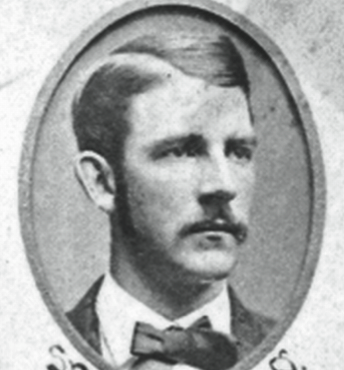September 20, 1872: In pre-championship exhibition, Red Stockings get best of Mutuals
 One day before the final game in the championship series between the Boston Red Stockings and the New York Mutuals, the two teams met on September 20, 1872, in a nonchampionship contest for a purse of $300 offered by the managers of the South Weymouth Park.1 The game was one of several events presented in conjunction with the eighth annual agricultural fair of the Weymouth Agricultural and Industrial Society. While the judging of livestock, poultry, fruit, vegetables, bread, butter, and cheese was a staple of the fair and reported on extensively in the Boston Post of September 21, the principal feature of the first day of the two-day fair was the baseball game.2
One day before the final game in the championship series between the Boston Red Stockings and the New York Mutuals, the two teams met on September 20, 1872, in a nonchampionship contest for a purse of $300 offered by the managers of the South Weymouth Park.1 The game was one of several events presented in conjunction with the eighth annual agricultural fair of the Weymouth Agricultural and Industrial Society. While the judging of livestock, poultry, fruit, vegetables, bread, butter, and cheese was a staple of the fair and reported on extensively in the Boston Post of September 21, the principal feature of the first day of the two-day fair was the baseball game.2
The two teams had last played on September 12 in a game the New York Clipper regarded as “one of the best played in fielding of the whole series between the two nines.”3 Fans came out in large numbers to see the Red Stockings, who stood atop the National Association standings with a record of 33-6, play an always tough opponent.
Although Boston had won six of the eight previous contests between the two clubs in this 1872 season, the games were generally closely contested, with five decided by two runs or less.4 Accordingly, an exciting game was expected in South Weymouth. The teams were escorted to the grounds by the South Weymouth Brass Band, and after entertaining the fans with their warm-up exercises, they began play.5
Apart from the Boston half of the sixth inning, the game was an even match, with each team scoring four runs, but Boston’s seven tallies in the sixth were the margin of victory. The Boston burst was a combination of heavy batting coupled with loose fielding on the part of Mutuals second baseman John Hatfield, shortstop Dickey Pearce, and third baseman Chick Fulmer, the latter having already made three errors in the contest.6 The Mutuals did succeed in keeping the score down by catching Andy Leonard attempting to steal second in the first,7 Ross Barnes attempting to score on a hit in the third,8 and Cal McVey attempting to score in the eighth.9 In the field, Boston’s George Wright excelled at shortstop and Leonard was stellar in the outfield.
Three events were deemed unusual by those who reported on the game. In the early going, Barnes tried to run but called upon Charlie Gould to take his place when a sprain he suffered in a game against the Athletics six days before proved troublesome.10 In the fourth Barnes struck out — a rarity for him.11 In the sixth Pearce reached first on called balls12 — a rare combination of wildness on the part of Al Spalding and umpire discretion on the part of Mr. Jack Burdock of the Atlantics Club of New York.13
In the final analysis, the game meant nothing in the championship standings but was yet another example of the importance of the business side of baseball; the two clubs, relatively well assured of a good draw, were willing to ignore the strictures against playing exhibition games before their championship series had been completed in order to compete for a significant purse.14
This article was originally published in “Boston’s First Nine: The 1871-75 Boston Red Stockings” (SABR, 2016), edited by Bob LeMoine and Bill Nowlin. To read more articles from this book at the SABR Games Project, click here.
Notes
1 “Base Ball – Bostons vs. Mutuals,” Boston Globe, September 21, 1872.
2 “Agricultural –The Weymouth Agricultural Fair – Base Ball – The Bostons Beat the Mutuals, Etc., Etc.,” Boston Post, September 21, 1872.
3 “Boston vs. Mutual,” New York Clipper, September 21, 1872. New York preferred playing exhibition games against top teams rather than championship games against lesser teams. Interestingly, their record in these exhibition games (4-8-1 in 1872) suggested that the games were not played with the same zeal exhibited in their championship contests. William J. Ryczek, Blackguards and Red Stockings: A History of Baseball’s National Association, 1871-1875 (Jefferson, North Carolina: McFarland, 1992), 90, 92.
4 Ibid.
5 Boston Globe, September 21, 1872.
6 Ibid.
7 Ibid.
8 Ibid.
9 “Base Ball – Prize Game Between the Bostons and Mutuals – The Reds Victorious by a Score of 11 to 4,” Boston Herald, September 21, 1872.
10 Boston Globe, September 21, 1872.
11 Boston Herald, September 21, 1872.
12 Boston Globe, September 21, 1872.
13 Jack Burdock played professional baseball from 1872 through 1888, and then three games in 1891. He was asked to umpire in 22 games during his time as a player.
14 See Ryczek, 57-58, for a discussion of the problem of exhibition games generally, and Ibid., 203, for corroboration of the fact that $300 was a meaningful purse for Harry Wright.
Additional Stats
Boston Red Stockings 11
New York Mutuals 4
South Weymouth Park
South Weymouth, MA
Corrections? Additions?
If you can help us improve this game story, contact us.

